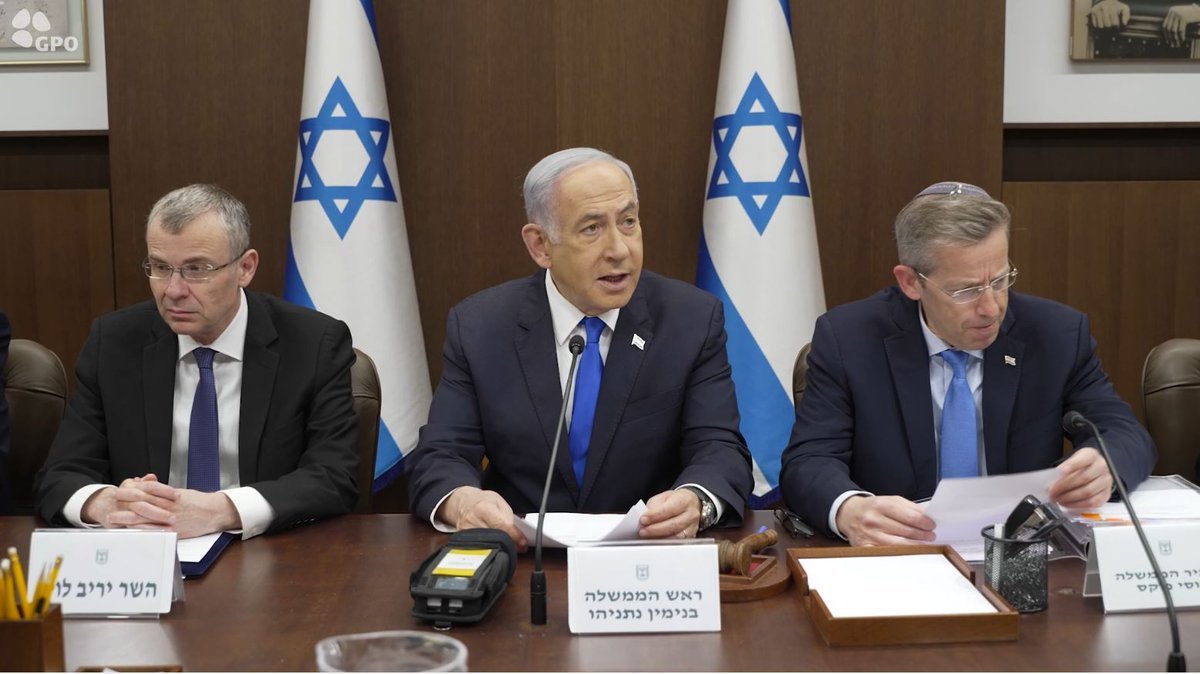Israeli Prime Minister Benjamin Netanyahu has agreed in principle to a U.S.-proposed ceasefire with Lebanon's Hezbollah
Israeli Prime Minister Benjamin Netanyahu has agreed in principle to a U.S.-proposed ceasefire with Lebanon's Hezbollah, following a high-level meeting on Sunday night, according to reports from The Times of Israel and Al Jazeera. Quoting officials in Jerusalem, Washington, and Beirut, multiple Israeli media outlets reported that the ceasefire proposal has yet to receive final approval. However, Tel Aviv has endorsed the core principles of the proposal.
Israeli Prime Minister Benjamin Netanyahu has agreed in principle to a U.S.-proposed ceasefire with Lebanon's Hezbollah
Israeli PM Netanyahu Agrees in Principle to Ceasefire Proposal with Hezbollah
Jerusalem – Israeli Prime Minister Benjamin Netanyahu has agreed in principle to a U.S.-proposed ceasefire with Lebanon's Hezbollah, following a high-level meeting on Sunday night, according to reports from The Times of Israel and Al Jazeera.
Quoting officials in Jerusalem, Washington, and Beirut, multiple Israeli media outlets reported that the ceasefire proposal has yet to receive final approval. However, Tel Aviv has endorsed the core principles of the proposal.
Key Elements of the Ceasefire
The proposed agreement, mediated by U.S. Special Envoy Amos Hochstein during his recent visits to Beirut, Jerusalem, and Lebanon, outlines an initial 60-day ceasefire as a foundation for a permanent truce.
Under the agreement:
- Hezbollah would vacate positions in southern Lebanon, particularly south of the Litani River.
- Only the Lebanese Army and United Nations peacekeepers would be allowed to operate in these areas.
Lebanon's government and Hezbollah have reportedly accepted the U.S. proposal. Hezbollah’s leader, Naim Qassem, confirmed last week that the group had reviewed the proposal and communicated their response through Parliament Speaker Nabih Berri, acting as a mediator.
Hochstein described the ceasefire initiative as "the last chance" to move forward toward a resolution.
Escalation Amid Negotiations
Despite ongoing discussions, Hezbollah launched over 300 missiles and drones into Israeli territory, targeting military and naval installations.
- Hezbollah claimed responsibility for strikes on Ashdod Naval Base and a military facility in southern Israel using advanced missiles and drone barrages.
- Israel’s Army Radio reported 340 rocket attacks from Lebanon on Monday, with 11 Israelis seriously injured, according to medical sources.
Israel retaliated by striking Hezbollah’s military headquarters in Beirut’s Dahiyeh district, targeting intelligence and missile units. Additional strikes hit a military base between Tyre and Naqoura, killing one Lebanese soldier and wounding 18 others. The Lebanese military confirmed the casualties.
Casualties and Continued Tensions
Since the conflict began, over 40 Lebanese soldiers have been killed in Israeli airstrikes, according to Lebanon’s armed forces. The latest attacks come a day after Israeli strikes in central Beirut killed 29 people, escalating tensions further.
Both sides remain entrenched in hostilities, even as efforts continue to establish a framework for a lasting peace. The international community is closely monitoring the situation, with hopes pinned on the U.S.-led mediation to halt further bloodshed.










